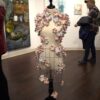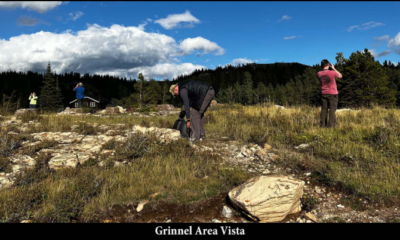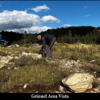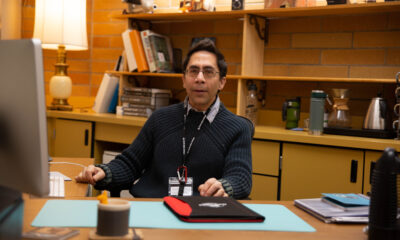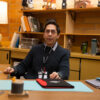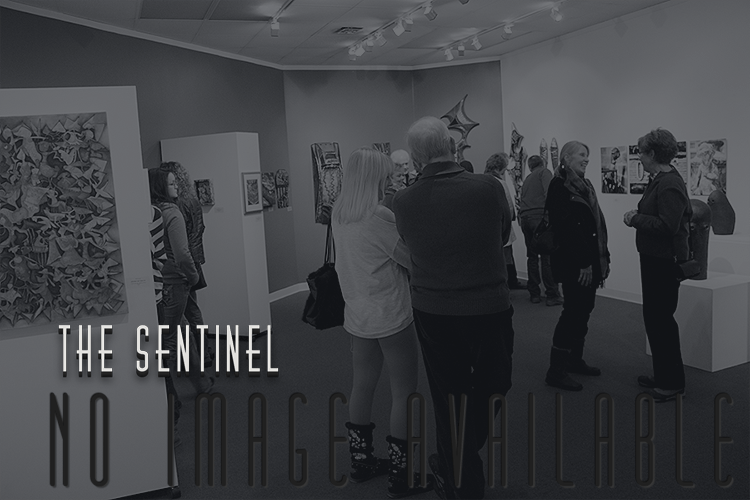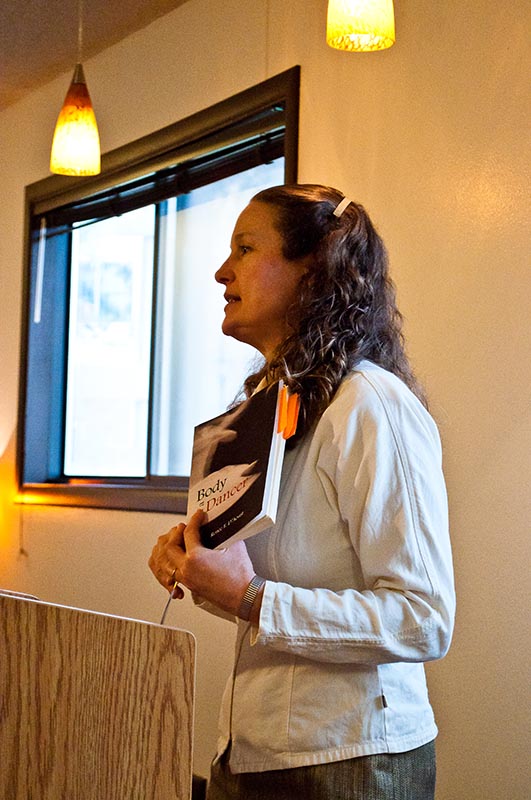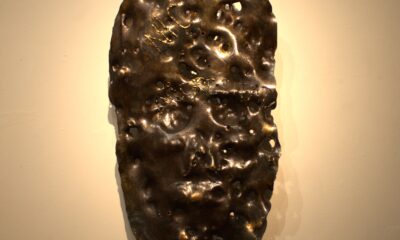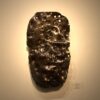Three U.S. authors spoke about the facets of writing in NIC’s Todd Lecture Hall on April 13 as part of Spokane’s Get Lit Festival.
Get Lit liaison and NIC English instructor Jonathan Frey welcomed Jason Skipper, Lori Ostlund and K. L. Cook. The guests focused on setting as an integral part of writing and read passages from fictional pieces they created.
Skipper grew up in Texas as a freelance journalist and now resides in Tacoma where he teaches creative writing and literature at Pacific Lutheran University. His work has appeared in numerous journals, and he has awards and recognition for his writing. He read a scene from his debut novel “Hustle,” which explores the bonds between three generations of southern men.
“I tend to write a lot about people from Texas,” Skipper said. “If I’ve been there, it helps; if I haven’t been there, I try to go. It all feeds into your work.”
Skipper said he sets up stakes for the scenes and absorbs them through the senses, attuning them to concrete details that he conveys to the reader. One must submerge oneself in a completely different place, he explained, paying attention to the situation, the time, the weather, and how the characters interact.
“Keep your eyes and ears wide open. Objects will appear from what feels like the ether. Then they will materialize and speak to you,” Skipper said.
Lori Ostlund said she prefers to speak anecdotally and philosophically as a writer. She gave her home state of Minnesota as an example.
“If you put your mind to it,” she told the audience, “you can come up with all kinds of stereotypes. As a writer, we have to know about those stereotypes. “
We must figure out what we [the author] don’t know and what they [the reader] doesn’t know. It’s how stories shape us – the character is created by the place. She said she creates quirky characters with dark humor, because humor becomes a way of dealing with emotion.
“Know your character well,” she said, adding that it’s important for a writer
to get perspective. If you describe everything, she said, you tell nothing. It’s like looking through a camera – cut through the nonsense so as not to mislead.
Ostlund read a passage entitled, “Talking Fowl with my Father,” a short
story from her collection “The Bigness of the World” which won her the 2008 Flannery O’Connor award for Short Fiction as well as the 2010 Best American Short Stories and the 2011 PEN/O Henry Prize Stories. She has also won several other awards and nominations and been published in lots of journals. She just finished a two-year stint as Kenan visiting writer at UNC – Chapel Hill.
K . L. Cook read “The Man Who Fell From the Sky,” an excerpt from his book “Love Songs for the Quarantined” which won him the 2010 Spokane Prize for Short Fiction. He is also the author of another collection of stories entitled “Last Call” and a novel “The Girl from Charnelle” and is widely published in anthologies and journals.
Originally from Texas, Cook said, when it comes to writing, he likes to think of it in terms of the teaching self and the writing self. He said we can’t write about something without first confronting it.
“The guiding light is the character; character is everything.” Find your character first; try to feel his spirit and do a lot of research, he suggested.
He then listed three types of writers: 1) the preservationist (historians or “gatekeepers”), 2) the eulogist (recorders), and 3) the ethnographers (observers).
“As a writer, you want to own your place.” Look for interesting places and know how to filter characters. Each place carries its own literature and cultural history, he said.
The genre is our obsession with a place, he said, the way we think about fiction. For example, if one is interested in mysteries then they are interested in puzzles, whereas one who is interested in ghosts is interested in the other world.
He currently lives in Prescott, Ariz. where he teaches creative writing and literature at Prescott College and the Spalding Univ. brief-residency MFA program.
One audience member posed the question to the panelists, “Do you have time to stop and smell the literary roses?”
Skipper replied, “I vomit up my initial draft. It’s messy, but I get it all out. Then I put it away for a while and come back and sort through it. I make sure it has a beginning, middle, and an end.”
Get Lit seeks to engage members of the Inland Northwest Community in a celebration of the written word and to encourage discussion, at all age levels, of literature in its many forms. They host a literary festival each spring as well as educational outreach projects throughout the year.



